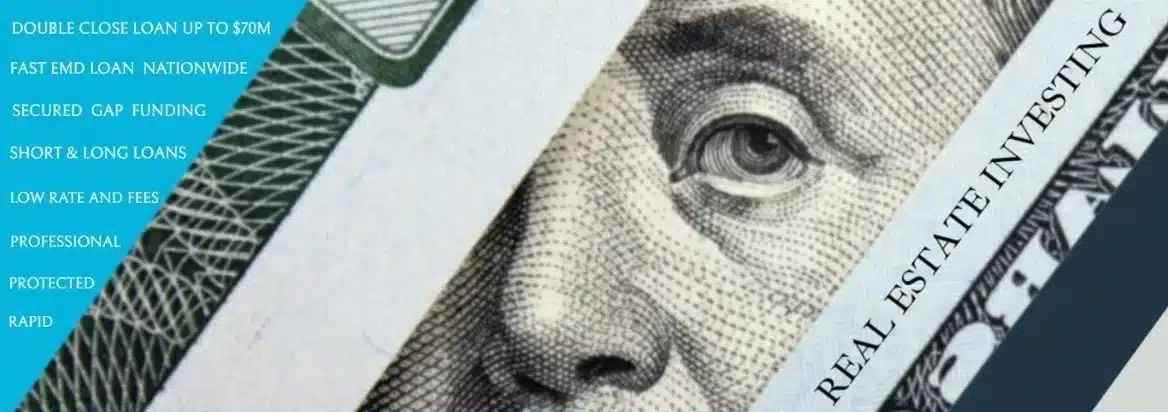Double closing in real estate is a two-step transaction where you (the wholesaler) buy from the seller and then immediately sell to the end buyer—usually within hours. It’s often used when the end buyer isn’t comfortable with assignment contracts or when the wholesaler wants to protect their profit margins.
This is where double close funding becomes your strongest ally. It bridges the financial gap so you can close the first leg of the deal (A to B) without tapping into your own cash.
EMD Transactional Funding offers fast access to short-term capital so you don’t miss out on tight-window opportunities—no upfront fees, no personal credit check.
Must-Know Terms for First-Time Investors
Here’s a quick glossary to help you navigate the process like a pro:
| Term | What it means |
| Assignment Contract | Agreement that transfers your rights to buy a property to someone else |
| A-B Transaction | Deal between the seller and you (the wholesaler) |
| B-C Transaction | Deal between you and the end buyer |
| Escrow Timeline | The time period when money and documents are held before finalizing the sale |
| Funding Window | The gap between A-B and B-C closings—can be as short as a few hours |
| Proof of Funds (POF) Letter | Document that assures the seller you have funds to close the deal |
Double Close Funding: How It Works
Still not sure how you close two deals in one day without touching your savings?
Let’s break it down step-by-step:
Step 1: Secure the A-B Contract
Negotiate with the property seller and lock the property under contract.
Step 2: Line Up the B-C Buyer
Find your end buyer and get them under contract at a higher price. This is where your profit lives.
Step 3: Use Transactional Funding
Partner with a transactional lending services provider who offers double close funding—this covers the A-B deal without needing your own money.
Step 4: Align Both Closings
Schedule both deals (A-B and B-C) on the same day with your title company. Timing is crucial here.
Step 5: Close, Collect, and Repeat
Once the B-C buyer funds the deal, the lender gets repaid, and you pocket the spread.
Watch Out: Three Common Pitfalls First-Timers Miss
- Overlapping Deadlines Can Derail Closings
If your B-C buyer delays, your A-B deal may collapse. Always confirm their readiness with the title agent. - Not Understanding Your Costs
Title fees, lender fees, and holding costs—these add up fast. Always ask your lender for a full breakdown. - Using Unverified Buyers
Your whole strategy hinges on the B-C buyer showing up. Vet them thoroughly. A no-show means no payday.
Why Timelines Matter: The Hidden Pressure of Escrow Windows
The time between your two closings can be as little as one hour. According to the National Association of Realtors, 67% of real estate deals that fall through do so because of missed financing or closing deadlines. That’s why your funding partner must be fast, reliable, and experienced in double closings.
EMD Transactional Funding caters to these exact challenges. Whether you need earnest money deposits or same-day transactional capital, we provide tailored solutions so your deal never stalls.
Still Wondering If This Works for You?
- What if your seller is nervous about assignments?
- What if your buyer needs to see clear title before wiring funds?
- What if you need funding, fast, without a paper trail of debt?
You’re closer to your first successful wholesale deal than you think.
So, What’s Next?
You’ve just learned the core of double close funding, how it works, what terms to know, and what risks to avoid. But there’s more to explore—like how to speed up closings or secure funding in under 24 hours.
And here’s the real question—Are you ready to fund your next deal without using your own money?
Need help planning your first double close?
Reach out now and get fast answers, funding, and full support from our expert team.
Let’s turn your next deal into a done deal.









